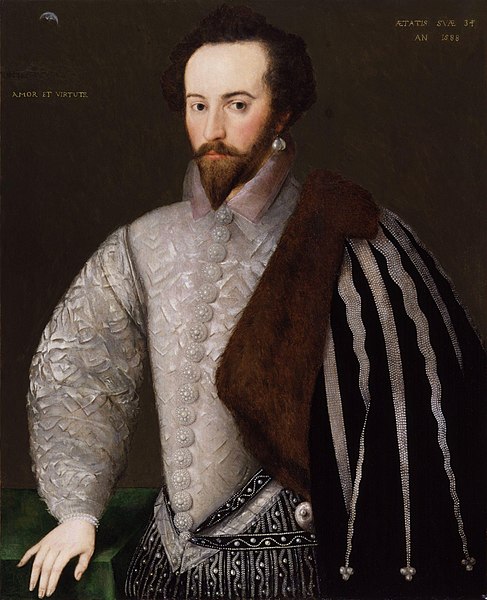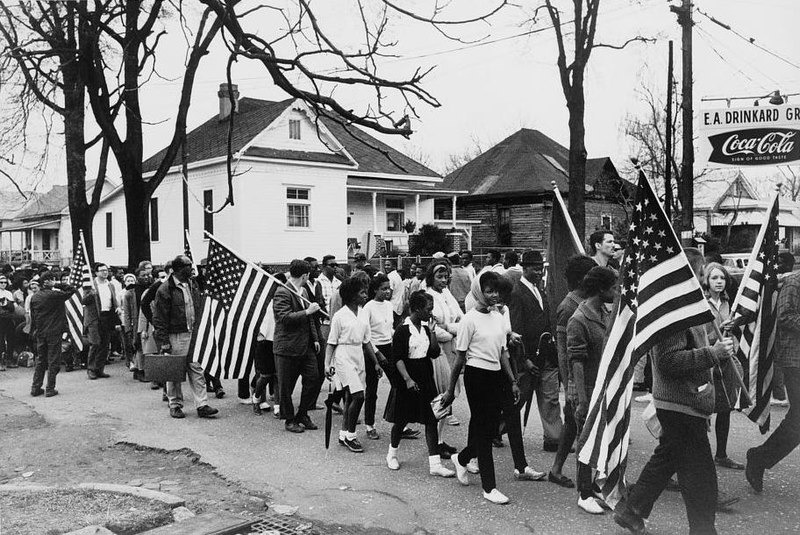This article navigates through 20 notable events that occurred on March 25th, spanning from ancient history to modern times.
It includes the founding of Venice, significant legislative changes like the abolition of the slave trade, scientific achievements, and moments of social and political importance.
Each event underlines the diverse and transformative nature of human history on this day, offering insights into the evolution of society and the enduring impact of these milestones.
March 25th Events in History
421 – The city of Venice is founded at twelve o’clock noon, according to legend
According to legend, the city of Venice was founded at exactly twelve o’clock noon on March 25, 421. The foundation is attributed to the dedication of the first church, San Giacomo, on the islet of Rialto. Venice was originally a refuge for people fleeing from Germanic and Hun invasions post-Roman Empire collapse.
Also Read: March 24 – On this Day in History
Over centuries, Venice evolved into a powerful maritime republic, known as the “Serenissima Repubblica di Venezia.” Its strategic location and mastery over trade routes turned it into a major Mediterranean naval power.
1306 – Robert the Bruce becomes King of Scots
On March 25, 1306, Robert the Bruce was crowned King of Scots at Scone, near Perth. His coronation was a significant event in the tumultuous history of Scotland’s struggle for independence from England. Robert’s reign was marked by the Wars of Scottish Independence against England.
Also Read: March 26th Events in History
Despite early losses, including his defeat at the Battle of Methven, Robert the Bruce’s forces eventually triumphed, most famously at the Battle of Bannockburn in 1314. He is celebrated as a national hero of Scotland for securing Scotland’s independence from English rule.

1584 – Sir Walter Raleigh is granted a patent to colonize Virginia
Sir Walter Raleigh, an English adventurer and writer, was granted a patent by Queen Elizabeth I on March 25, 1584, to explore, colonize, and rule any “remote, heathen and barbarous lands, countries, and territories, not actually possessed by any Christian prince or people,” specifically the area that would later be called Virginia, in honor of Elizabeth, the “Virgin Queen.”
Raleigh’s expeditions led to the first English settlement in America, although the Roanoke Colony did not survive. His efforts paved the way for future English colonization in the New World.
1634 – The first settlers arrive in Maryland (a group of Catholic refugees on the ships the Ark and the Dove)
The first settlers to what is now Maryland arrived on March 25, 1634, at St. Clement’s Island on the Potomac River. They were a group of about 140 European settlers, consisting mostly of English Catholics fleeing religious persecution.
Led by Cecil Calvert, the second Lord Baltimore, they established the colony as a haven for Catholics in the New World. Maryland’s Charter of 1632 had granted Lord Baltimore rights to the land, and the colony quickly became a center for both religious freedom and tobacco farming, using indentured and enslaved labor.
1655 – Saturn’s largest moon, Titan, is discovered by Christiaan Huygens
On March 25, 1655, Christiaan Huygens, a Dutch astronomer, mathematician, and physicist, discovered Titan, Saturn’s largest moon and the second-largest moon in the solar system. Huygens made the discovery using a telescope of his own design, marking a significant moment in the history of astronomy.
Titan is notable for its thick atmosphere, which is unique among moons in the Solar System, and its surface, which includes lakes of liquid methane and ethane. Huygens’ discovery of Titan expanded humanity’s understanding of the solar system and paved the way for future explorations of outer space.
1807 – The Slave Trade Act becomes law, abolishing the slave trade in the British Empire
The Slave Trade Act of 1807 was a pivotal piece of legislation passed by the British Parliament that made the trade in slaves illegal within the British Empire. Championed by figures such as William Wilberforce, who was a leading voice in the anti-slavery movement, the act did not end slavery itself but prohibited the trading of slaves throughout the British territories.
The passing of this act marked a significant victory for abolitionists and was a critical step towards the eventual abolition of slavery throughout the British Empire with the Slavery Abolition Act of 1833. The act also had international implications, influencing anti-slavery legislation in other countries.
1821 – (Julian calendar) Greece gains independence from the Ottoman Empire (celebrated on March 25, Greece’s National Day)
March 25 is celebrated as National Independence Day in Greece, commemorating the start of the War of Greek Independence in 1821. Greek revolutionaries sought to end several centuries of Ottoman Turkish rule. The war lasted until 1832, culminating in the recognition of Greece’s independence by the Ottoman Empire and the great powers of the time.
The Greek Orthodox Church played a significant role in the cultural and spiritual life of the Greek people during Ottoman rule, and the Church’s declaration of the revolution on March 25 (Julian calendar) tied the struggle for independence to religious symbolism, aligning it with the Annunciation to the Virgin Mary.

1865 – During the American Civil War, the Battle of Fort Stedman occurs
The Battle of Fort Stedman was one of the last major Confederate offensives of the American Civil War, taking place near Petersburg, Virginia, on March 25, 1865. General Robert E. Lee hoped to break through the Union siege lines that had encircled Petersburg and Richmond for several months. The attack was initially successful but was ultimately repelled by Union forces.
The failure of the Confederates to break the siege at Fort Stedman expedited the fall of Petersburg and Richmond, leading to Lee’s surrender at Appomattox Court House less than three weeks later, effectively ending the Civil War.
1894 – Coxey’s Army, the first significant American protest march, departs Massillon, Ohio for Washington D.C
In 1894, amidst a severe economic depression known as the Panic of 1893, a businessman named Jacob Coxey led a group of unemployed men from Massillon, Ohio, to Washington D.C. in what became known as “Coxey’s Army.”
The march was one of the first significant American protest marches, aiming to demand that the federal government create jobs for the unemployed. Although the march did not succeed in its immediate goals, it highlighted the plight of the working class and set a precedent for future marches on Washington for political and social causes.
1911 – The Triangle Shirtwaist Factory fire in New York City kills 146 workers
The Triangle Shirtwaist Factory fire occurred on March 25, 1911, in New York City and is one of the deadliest industrial disasters in U.S. history. The fire broke out on the upper floors of the Asch Building in the Greenwich Village neighborhood. Due to locked fire exits and inadequate fire safety measures, many workers were trapped inside and perished.
The majority of the victims were young immigrant women. The tragedy led to widespread outrage and sparked significant reforms in labor laws and fire safety regulations, marking a turning point in the American labor movement.
1917 – The Georgian Orthodox Church restores its autocephaly abolished by Imperial Russia in 1811
In 1917, amidst the turmoil of the Russian Revolution and the subsequent collapse of Imperial Russian authority, the Georgian Orthodox Church declared the restoration of its autocephaly (independence) that had been abolished by Russia in 1811.
This move was a significant assertion of national identity and spiritual independence for Georgians, who had long resisted Russian imperial control.
The restoration of autocephaly was part of broader efforts by Georgia to establish its sovereignty and cultural identity following centuries of domination by larger powers. This event is a critical milestone in the history of the Georgian nation, reaffirming the ancient traditions and autonomy of the Georgian Orthodox Church.
1924 – On the Greek island of Lesbos, an earthquake strikes, killing one-third of its population
The 1924 earthquake on the Greek island of Lesbos was a devastating natural disaster that struck with little warning. It resulted in the loss of a significant portion of the island’s population, with casualties numbering in the thousands. The destruction of infrastructure and homes led to a humanitarian crisis, with many survivors left homeless and in dire need of aid.
This tragedy underscored the vulnerability of communities to natural disasters and the importance of emergency preparedness and response. The earthquake of 1924 is remembered as one of the darkest moments in the history of Lesbos, marking a period of mourning and reconstruction.
1947 – An explosion in a coal mine in Centralia, Illinois, kills 111
On March 25, 1947, one of the deadliest mining disasters in American history occurred when an explosion ripped through the Centralia No. 5 Coal Mine in Centralia, Illinois. The disaster was attributed to the accumulation of coal dust and methane gas, which ignited, causing a massive explosion that killed 111 miners.
The tragedy brought to light the dire need for improved safety regulations and enforcement in the mining industry. It led to significant legislative and policy changes aimed at protecting miners, including the Federal Coal Mine Safety Act of 1952, which sought to address some of the systemic issues highlighted by the Centralia disaster.
1957 – The European Economic Community is established by the Treaty of Rome
The Treaty of Rome, signed on March 25, 1957, established the European Economic Community (EEC), marking a foundational step towards European integration. The EEC aimed to create a common market allowing free movement of goods, services, capital, and people among member states, initially including Belgium, France, Italy, Luxembourg, the Netherlands, and West Germany.
The treaty laid the groundwork for the development of the European Union (EU), fostering economic cooperation and unity among European nations in the post-World War II era. The EEC’s establishment was a significant milestone in the history of Europe, promoting peace, stability, and economic prosperity through integration.

1965 – Civil rights activists led by Martin Luther King Jr. successfully complete their 4-day 50-mile march from Selma to the capitol in Montgomery, Alabama
The Selma to Montgomery marches were a pivotal moment in the American civil rights movement, highlighting the struggle for African American voting rights. The successful completion of the 50-mile march on March 25, 1965, led by Dr. Martin Luther King Jr., came after two previous attempts, the first of which was brutally repressed by law enforcement on what became known as “Bloody Sunday.”
The marches drew national attention to the systemic denial of voting rights to African Americans in the South and contributed to the passage of the Voting Rights Act of 1965, one of the most significant legislative achievements of the civil rights movement. The march from Selma to Montgomery is remembered as a symbol of determination and the fight against racial injustice.
1975 – Faisal of Saudi Arabia is shot and killed by a mentally ill nephew
King Faisal of Saudi Arabia, a pivotal figure in the 20th-century Middle East, was assassinated on March 25, 1975, by his nephew, Prince Faisal bin Musaid. The prince was reportedly motivated by personal grievances, although his actions also reflected the turbulent politics of the region.
King Faisal had been instrumental in modernizing Saudi Arabia, implementing reforms like education for women and the introduction of television.
He also played a significant role in OPEC and the 1973 oil embargo. His assassination marked a profound moment in Saudi Arabian history, leading to a period of consolidation under his successor, King Khalid.
1988 – The Candle demonstration in Bratislava is the first mass demonstration of the 1980s against the Soviet regime in Czechoslovakia
On March 25, 1988, the Candle Demonstration took place in Bratislava, Czechoslovakia (now Slovakia), representing a significant act of peaceful protest against the oppressive Soviet-backed regime. Organized by Roman Catholic groups calling for religious freedom and human rights, the demonstration was dispersed by police, who arrested many participants.
Despite the crackdown, the event is seen as a precursor to the Velvet Revolution of 1989, which led to the end of Communist rule in Czechoslovakia. The Candle Demonstration showed the growing discontent with the regime and the power of peaceful protest in challenging authoritarian rule.
1995 – WikiWikiWeb, the world’s first wiki, is made public by Ward Cunningham
The WikiWikiWeb, created by Ward Cunningham, was launched on March 25, 1995, as the first wiki ever developed. The concept of a wiki—a collaborative space where users can create, edit, and link web pages with ease—revolutionized the way information is shared and managed online.
Cunningham’s innovation provided the foundation for countless collaborative projects online, including the well-known Wikipedia. The WikiWikiWeb emphasized the power of community-driven content creation and knowledge sharing, principles that have since become integral to the digital landscape.
1996 – The European Union’s Veterinarian Committee bans the export of British beef and its by-products as a result of mad cow disease (BSE)
In response to the outbreak of Bovine Spongiform Encephalopathy (BSE), commonly known as mad cow disease, the European Union’s Veterinarian Committee imposed a ban on March 25, 1996, on the export of British beef and its by-products.
The decision was made amid concerns over the disease’s potential to affect humans, known as Creutzfeldt-Jakob disease (vCJD). The ban, which lasted for over a decade, had significant economic impacts on the UK’s beef industry and led to widespread reforms in animal husbandry and food safety practices within the EU and globally.
The crisis highlighted the importance of food safety standards and the need for stringent regulatory measures to protect public health.
2015 – Germany’swings Flight 9525 crashes into the French Alps, killing all 150 on board
On March 25, 2015, Germanwings Flight 9525, a scheduled passenger flight from Barcelona, Spain, to Düsseldorf, Germany, tragically crashed in the French Alps, resulting in the deaths of all 150 people on board. Investigations revealed that the co-pilot deliberately flew the aircraft into the mountains after locking the captain out of the cockpit.
The incident profoundly impacted the aviation industry, leading to changes in cockpit security procedures, including the requirement that two authorized personnel be in the cockpit at all times. The tragedy also sparked discussions about mental health support for pilots and the stigma surrounding mental illness.
